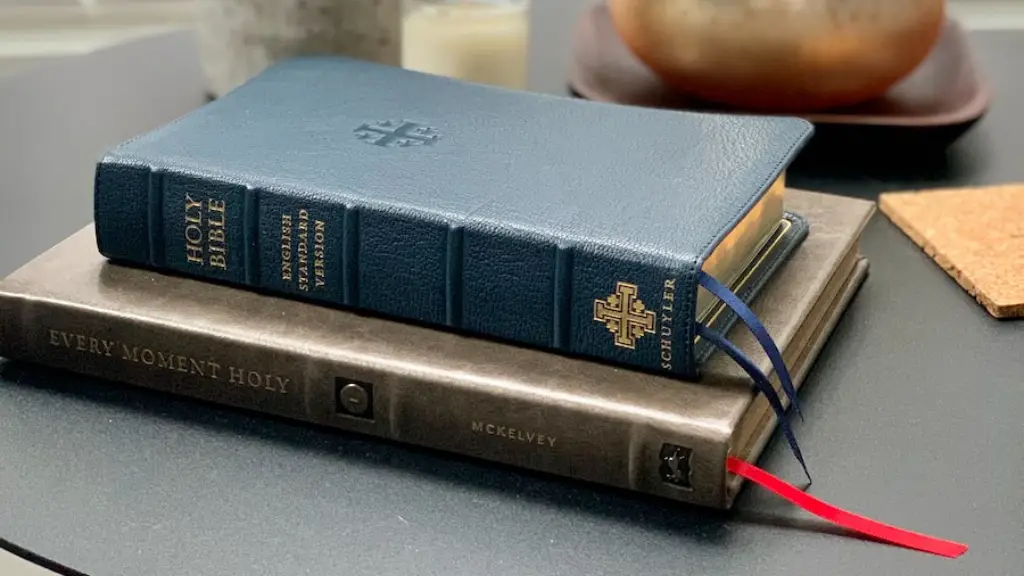The bible is silent on the topic of the coronavirus pandemic. However, there are biblical principles that can be applied to the situation. The book of Philippians instructs Christians to “Do not be anxious about anything, but in every situation, by prayer and petition, with thanksgiving, present your requests to God. And the peace of God, which transcends all understanding, will guard your hearts and your minds in Christ Jesus” (4:6-7). In other words, we are to trust God and not be controlled by fear. Additionally, the book of James says that “every good and perfect gift is from above, coming down from the Father of the heavenly lights, who does not change like shifting shadows” (1:17). This reminds us that God is in control and is sovereign over all. He is not surprised by this pandemic, and He will use it for His purposes.
The Bible does not mention the coronavirus pandemic specifically. However, there are Scriptural passages that speak to the general principle of God’s protection during times of crisis and disaster. For example, Psalm 91:1-16 reassures believers that God is a “shield and fortress” who will keep them safe from harm. In Matthew 10:29-31, Jesus promises that His followers will be protected from danger, even “a sparrow cannot fall to the ground without [God] knowing it.” Ultimately, we trust that God is sovereign and in control even in the midst of global pandemics and other crises.
Is quarantine mentioned in the Bible?
The practice of quarantine can be traced back to the 14th century when the Black Death, a devastating pandemic of bubonic plague, swept across Europe. In an effort to prevent the spread of the disease, cities began to require ships arriving from infected ports to sit at anchor for a period of time before passengers and crew were allowed to disembark. This practice, known as “waiting out the plague,” was eventually adopted by other countries and is still in use today.
Plagues and afflictions are seen as God-sent punishments for humankind. They are usually described as elements from the divinely ordained sequences of seven phenomena that strike the earth. They wreak havoc on behalf of God himself and thereby act as mediators of divine wrath.
What does the Bible say about protection from diseases
This verse from the Bible is a reminder that God is always there for us, even in the darkest of times. He will protect us and keep us safe from harm. We can always find refuge in Him.
The plagues are a series of disasters that befall Egypt in the Bible’s Book of Exodus. The plagues are ten in number, and are designed to punish the Pharaoh and his people for refusing to let the Israelites go free. The plagues are: turning water to blood, frogs, lice or gnats, wild animals or flies, pestilence of livestock, boils, thunderstorm of hail and fire, locusts.
What does the Bible say about isolating?
Proverbs 18:1 tells us that a man who isolates himself is likely doing so because he is seeking his own desires. This is not a good thing, as it means that he is going against all wise judgment. If you find yourself in this situation, it is important to reach out to friends and family members for support.
God has always encouraged his followers to practice social distancing in order to stay spiritually healthy. He wants us to come out from amongst those who are unclean and to be separate from them. If we do this, then he will receive us.
What are the 3 plagues in Revelation 9?
A third of mankind was killed by the three plagues of fire, smoke and sulfur that came out of their mouths. The power of the horses was in their mouths and in their tails; for their tails were like snakes, having heads with which they inflict injury.
The Book of Revelations in the New Testament lists the Four Horsemen of the Apocalypse as conquest, war, famine and death. The Four Horsemen of the Apocalypse are a symbolic representation of the four major problems that humanity faces. In the Old Testament’s Book of Ezekiel, the Four Horsemen of the Apocalypse are sword, famine, wild beasts and pestilence or plague.
What are the 10 plagues in the Bible in order
The plagues were a way for God to show his power to Pharaoh and to convince him to let the Israelites go. The plagues affected every part of life in Egypt, and they got progressively worse. The final plague, the death of the firstborn children, was the most devastating. Pharaoh finally relented after that, and the Israelites were able to leave Egypt.
The Bible’s final book, Revelation, describes seven angels bringing seven plagues to earth. These plagues are the culmination of God’s wrath, and they will result in the final destruction of all evil. The first angel brings a plague of hail and fire, which burns up the earth and destroys all life on it. The second angel brings a plague of water, which turns the sea to blood and kills all the creatures in it. The third angel brings a plague of fire, which burns up the people who have not been sealed by God. The fourth angel brings a plague of darkness, which covers the earth and makes it impossible to see. The fifth angel brings a plague of locusts, which sting and torment the people who have not been sealed by God. The sixth angel brings a plague of oil, which sets the earth on fire and burns up all the people who have not been sealed by God. The seventh angel brings a plague of great darkness, which covers the earth and makes it impossible to see.
What does the Bible say about receiving medical treatment?
There is nothing wrong with seeking help from God when we are sick. In fact, it is good to do both – to seek help from God and to go for appropriate medical treatment. Seeking help from God does not mean that we should not go for medical treatment.
The good news is that God is here to provide healing for you, whether you need physical, emotional, or mental healing. He will never leave you nor forsake you. He is the one you can praise for your healing.
What are the three great plagues
Plague is caused by a bacteria called Yersinia pestis. It can be transmitted to humans through the bite of an infected flea, contact with infected tissues, or exposure to respiratory droplets from an infected person or animal. Plague can cause three different forms of disease: bubonic, septicemic, and pneumonic.
Bubonic plague is the most common form of the disease and is characterized by fever, chills, and swollen lymph nodes (called buboes). Septicemic plague occurs when the infection spreads through the bloodstream and can lead to tissue death. Pneumonic plague is the most severe form of the disease and is transmitted through the air, causing pneumonia and often leading to respiratory failure and death.
The incubation period for bubonic plague is 2-8 days, septicemic plague is poorly defined but likely occurs within days of exposure, and pneumonic plague is just 1-3 days. Early diagnosis and treatment of plague is essential, as the disease can be rapidly fatal if left untreated.
This is the final chapter of the Bible and it brings things to a close. In it, we learn that the river of life flows from the throne of God and the Lamb, and that there will be no more night or sorrow. Everything will be made new, and those who are saved will inherit this new creation.
What natural disasters are in the Bible?
Earthquakes, famine, and pestilence are all natural disasters that can happen at any time. However, when they occur together, it may be an indication that the end times are near. Jesus himself referred to this when he spoke of the signs of the end times. The book of Revelation also describes a time when the earth will experience great natural disasters. While these examples may be frightening, we need to remember that God is in control and will ultimately judge the earth in the eschaton.
isolation creates distance from the church body and makes a person or family vulnerable to Satan’s attacks. It can also cause a person to make improper decisions based on fleshly motives.
How do Christians deal with isolation
When we feel lonely, it can be difficult to focus on anything else. However, spending time with God – through prayer, journaling, reading Scripture, or simply sitting in silence – can help us refocus on Him and depend more on Him. Having a strong connection with God enables us to cope better with feelings of loneliness by redirecting our attention away from ourselves and onto God.
This proverb is about the benefits of finding a wife. The man who finds a wife finds something good, and he also receives favor from the Lord. This is a positive proverb about marriage, and it shows that marriage is a good thing.
Final Words
The Bible does not specifically mention the coronavirus pandemic, but it does offer guidance on how to handle difficult times and provides hope for the future. In Psalm 46, God is our refuge and strength, an ever-present help in trouble. So we will not fear, even though the earth be shaken and mountains fall into the heart of the sea. In Matthew 24:6-8, Jesus says that there will be famines and earthquakes in various places. But all these things are the beginning of the birth pains. Then Jesus tells his disciples not to be alarmed, because these things must take place, but the end is not yet. In times of trouble, we can turn to God for strength, comfort, and hope.
The Bible says that we should not be afraid of the covid pandemic because God is with us and will protect us.




